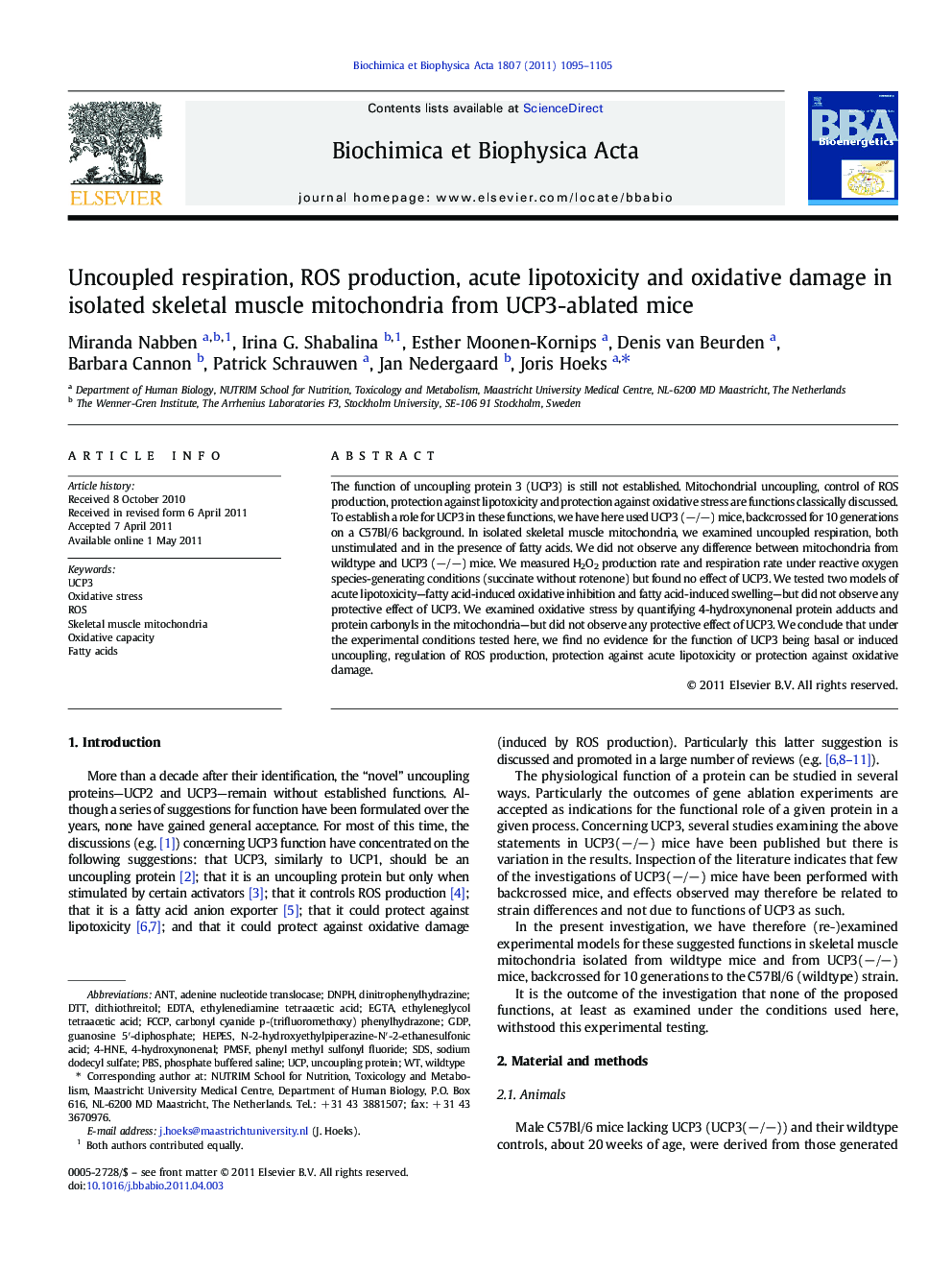| Article ID | Journal | Published Year | Pages | File Type |
|---|---|---|---|---|
| 1942672 | Biochimica et Biophysica Acta (BBA) - Bioenergetics | 2011 | 11 Pages |
The function of uncoupling protein 3 (UCP3) is still not established. Mitochondrial uncoupling, control of ROS production, protection against lipotoxicity and protection against oxidative stress are functions classically discussed. To establish a role for UCP3 in these functions, we have here used UCP3 (−/−) mice, backcrossed for 10 generations on a C57Bl/6 background. In isolated skeletal muscle mitochondria, we examined uncoupled respiration, both unstimulated and in the presence of fatty acids. We did not observe any difference between mitochondria from wildtype and UCP3 (−/−) mice. We measured H2O2 production rate and respiration rate under reactive oxygen species-generating conditions (succinate without rotenone) but found no effect of UCP3. We tested two models of acute lipotoxicity—fatty acid-induced oxidative inhibition and fatty acid-induced swelling—but did not observe any protective effect of UCP3. We examined oxidative stress by quantifying 4-hydroxynonenal protein adducts and protein carbonyls in the mitochondria—but did not observe any protective effect of UCP3. We conclude that under the experimental conditions tested here, we find no evidence for the function of UCP3 being basal or induced uncoupling, regulation of ROS production, protection against acute lipotoxicity or protection against oxidative damage.
Research highlights► UCP3 does not in itself innately function as an uncoupling protein ► Superoxide and fatty acids are unable to activate UCP3-mediated mitochondrial uncoupling ► Lack of UCP3 does not lead to oxidative damage
